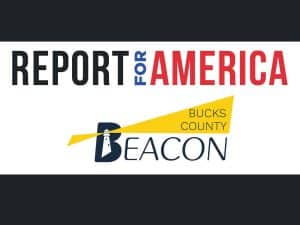It’s hard to learn on an empty stomach.
Proposed federal funding cuts to the Supplemental Nutrition Assistance Program (SNAP) could wipe out this necessary supplemental food programs for those whose incomes hover above, at or below the poverty level.
Federal funding cuts to SNAP and food insecurity programs ordered by the Trump Administration would hurt school children, the aged, and the disabled the most, according to Pennsylvania State Rep. Emily Kinkead (HD-20, Allegheny County).
“SNAP is the single most effective program when it comes to combating hunger in the wealthiest nation on Earth,” Kinkead said in a Represent PA virtual presentation held April 15.
Two million Pennsylvanians signed up to receive SNAP benefits in 2022, according to a January 2024 Pittsburgh Post-Gazette report. In fact, as Feeding America.org points out, more than 50 million people across the United States received food assistance in 2023.
Kinkead serves on several House committees, and she is co chair of the bipartisan Pennsylvania Legislative Hunger Caucus.
The Trump Administration’s cuts in federal funding of $1.6 billion to Pennsylvania are at stake. About $762 million of it goes to Title I funding, which supports youngsters in public school districts with high poverty rates.
The most recent U.S. poverty threshold report issued in 2023 is $29,960 for a family of four, according to USA Facts.org and the most recent report of Census.gov. The income amount is used to determine eligibility for programs like SNAP, the Low Income Home Energy Assistance Program, Head Start and the National School Lunch Program.
While Kinkead admitted many people think food insecurity is an urban issue, the reality is a higher percentage of those living in rural communities struggle to put food on the table.
“SNAP is effective and it dramatically reduces hunger and food insecurity,” she said.
Kinkead said food is the most fundamental, and foundational need, directly tied to a child’s ability to thrive, grow and learn. When kids have access to enough food, they are more able to do well in school and take advantage of learning opportunities.
READ: Nearly 1 in 3 Families with Children in Bucks County Are Struggling Economically, Says New Report
“They are also less likely to be disruptive, have medical issues or [suffer from] chronic illnesses,” she added.
Kinkead took the SNAP Challenge, described by the Food Research & Action Center (FRAC). The SNAP Challenge asks participants to eat on the average SNAP benefit of $6 per day. From a single day to a week, the length of the challenge is up to those who participate.
“Within three days I had the worst cold and quickly saw how dramatically [nutrition] can impact your health,” Kinkead said.
She advocates for universal school meals or School Meals for All, a proposed bill sponsored by Pennsylvania State Sen. Lindsey M. Williams (SD-38, Allegheny).






